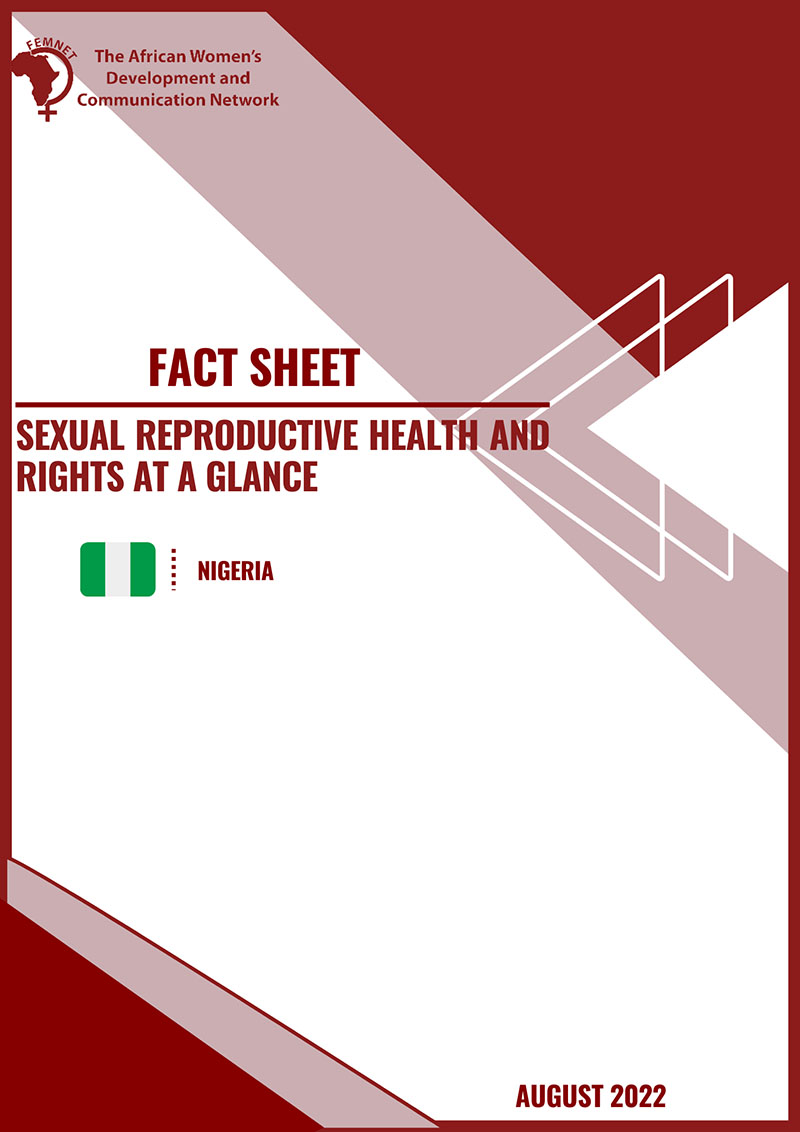
Factsheet: Sexual reproductive health and rights at a glance – Nigeria
Nigeria has a population of over 140 million and the reproductive age is 15-49 years which constitutes 50% of the Nigerian population1. Reproductive health indices in Nigeria are improving but they are still not good enough, for example the total fertility rate is 5.7, maternal mortality is 545 deaths per 100,000 live births, contraceptive prevalence of 13% and HIV prevalence of 4.4%. The Federal Ministry of Health developed the reproductive health policy to guide the provision of reproductive health services in the country. Various laws (statutory, customary and religious) are in force to address different areas of reproductive health. However, many of these laws do not reflect the reproductive health concept and are inadequate in actualizing reproductive health rights of Nigerians.
There are other policy documents that seek to address reproductive health system and these include, the National health policy and Strategy (1998) which emphasizes primary health care as the key to health care delivery; National Policy on Population for Development, Unity, Progress and Self Reliance (1988); Maternal and Child Health Policy (1994); National Adolescent Health Policy (1995); National Policy on HIV/AIDS/STI control (1997); National Policy on the Elimination of Genital Mutilation (1998). These policies shape the provision of sexual and reproductive health services in Nigeria stated in Revised National Health Policy (Federal Ministry of Health, 2004). In Nigeria, sexual and reproductive health services are provided at all levels of care, that is, tertiary, secondary and primary. All persons in Nigeria (male or female, young or old) are provided with reproductive health services. Barriers to accessing SRHR services in Nigeria include, gender roles, inadequate funding, social taboos, religious factors, lack of proper infrastructure and lack of access to information. The onset of COVID-19 in Nigeria, further compromised the already poor women’s access to sexual and reproductive health and rights, due to disruptions in the demand and supply of contraceptive commodities, the diversion of staff and resources to other clinical services, and clinic closures.
